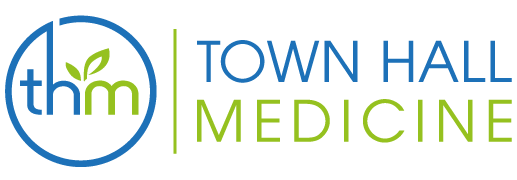The Microbiome Summit
The Town Hall Medicine Microbiome Summit will provide access to 21 world-renowned researchers in more than 35 video interviews, exploring over 25 microbiome topics over five themes:
The Paradigm Shift
We are on the verge of a massive breakthrough.
In the last five years, we have learned more about the microbiome than we ever knew before. We are on the verge of a massive breakthrough in the way that medicine is practiced, food is made, and how we view our health.
This is the first theme of the Microbiome Summit, which will give you the foundational knowledge from which you can build on in later themes. You will learn the basics of the microbiome, why a diverse microbiome is key to overall health, and how the importance of a diverse microbiome extends beyond our bodies and out into the world in which we live.
The Established Thinking
We are in the midst of a hygiene hangover.
The way that we approach medicine and food production does not necessarily reflect what we now know about the microbiome. There’s no denying that antibiotics and C-sections save lives. But as our understanding of the microbiome has developed, the way that medicine (and hygiene) is practiced has not grown along with it. Why are rates of C-section births still so high in some countries? Why are we still feeding antibiotics to livestock? The way that medicine is practiced and food is produced still follows established thinking that is slow to change.
In this theme, you will learn about how we are currently in the midst of a “hygiene hangover,” and what this means for our overall health. You will also learn about the history of probiotics directly from the researcher who fought so hard to coin this term.
Impacts of Sanitizing Our World
Sanitization has done some good, but at what cost to our health?
Sanitization has done some good things – it has obliterated many infectious diseases. But at what cost to our health? Chronic disorders – like depression, autism, allergies, asthma and autoimmune disease – are rising every year, with no end in sight.
In this theme, you will learn about how the microbiome relates to chronic disease. You will learn how diet, depression and the microbiome are connected, and why diet should be considered in mental health treatment. You will learn about how autoimmune disease and autism could possibly originate in the gut, and how microbe metabolites could be a better predictor of type 1 diabetes than genetics.
The New Path to Health
What can we expect in the future of medicine?
While we don’t have a crystal ball to help us see the future, we know that sanitization and our established way of thinking has lead us down the wrong path. With all of the new discoveries about the microbiome being made, what can we expect in the future of medicine? What can we do now? What are the missing pieces of the puzzle? It is time to carve out a new path to health.
You will learn how stress and aging can impact your microbiome, and what you can do about it. You will learn about how spending time inside can alter the makeup of your microbiome, and how a new approach to farming – called Ecological Farming – can improve the state of our soil and maintain important ecosystems in food production. You will also learn about how the state of our microbiome can influence how well a medical treatment works, and what is still left to learn.
Love Your Microbiome
It’s time to take action.
There is only one way forward – to love our microbiome! There are practical ways to nurture our bacteria in today’s day and age. Nurture it through diet. Study it to better understand it. This last theme of the Summit will inspire you to take action.
You will learn how to use fermentation to boost the nutrition and digestibility of your food at home – directly from the internationally recognized expert. You will learn the science and history behind the diets that shift bacteria populations – like the low FODMAP diet, and the new Anti-Inflammatory Diet for Inflammatory Bowel Disease (AID-IBD). You will also learn about some of the technology being used to better understand the microbiome and the complex interactions between microbes and the body, and how the microbiome will be considered in the future of medicine.



